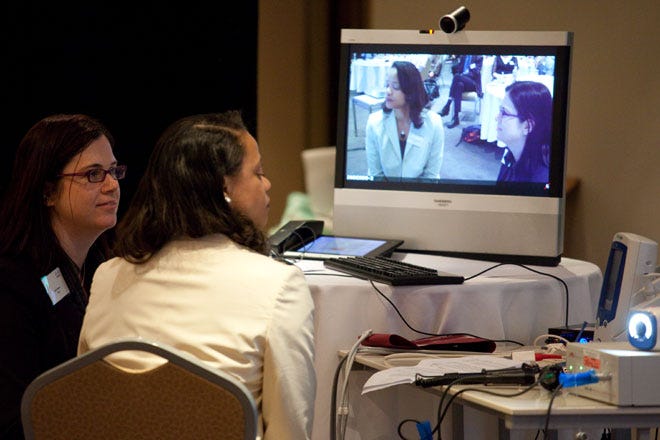California, ethics, and telehealth
Friday Pulse Check
Good morning,
In case you’re curious, no, there is still no Independent Dispute Resolution for the No Surprises Act. We are at day forty-two.
You may have noticed it has been a little quiet over here at Flatlining this week. This might happen from time to time, but you can count on the Friday Pulse Check to still show up in your inbox. This week, we’re showcasing some of the articles that we came across this week.
Medi-Cal Drug Problems
Last week Ron explained why California’s universal healthcare bill failed in the state assembly without even going to a vote. One of the reasons is that it would be detrimental to the state is that it would over burden the already stressed healthcare system there.
Another reason was demonstrated this week. Kaiser Health News reported on Wednesday that California’s Medi-Cal drug program is having some problems. At the beginning of the year, the state contracted Magellan Health to administer the program (officially called Medi-Cal Rx). Public-private partnerships sound good right? Normally I would agree, but Magellan seems to have dropped the ball here.
Medi-Cal Rx is part of California’s Medicaid program and is designed for their Medicaid patients. The delays from Magellan have caused patients to be without their prescriptions for days and even weeks.
Of course, we can’t put all the blame on Magellan. Apparently, hundreds of their employees have been out during the omicron COVID-19 surge. Magellan is also pointing fingers at the state for not getting some of the data it needs for managed-care plans.
To see or not to see?
An opinion piece caught my attention this week. L.S. Dugdale, a physician ethicist at Columbia University, wrote in the Wall Street Journal this week about the ethics of refusing to see patients without the COVID-19 vaccines.
Regardless of where you come down on this issue, it caught our attention. Let us know what you think the comments below. Of course, the views presented in the linked article do not necessarily represent the views of FLATLINING or Fulcrum Strategies.
Extended benefits of telehealth

Today, US News published a piece on how telehealth can help tremendously for patients who need psychiatric care. Telehealth helped regular doctor visits moving throughout the pandemic and its continuing to help in rural communities for specialty groups such as psychiatrists and psychologists.
US News is reporting on a study that was conducted to see if telehealth would be beneficial for patients who have multiple psychiatric conditions and chronic physical health problems. Researchers looked at just over 1000 people with post-traumatic stress disorder, bipolar disorder, or both who used to two types of telehealth at twenty-four safety-net clinics in Michigan, Washington, and Arkansas. Two-thirds of the patients had incomes or disabilities that made them eligible for Medicaid and half were unemployed.
What is also interesting to me is that the study was conducted ante-COVID-19. With all the improvements we’ve seen in the past two years to telehealth, this is only good news.
And….
Of course we’ve been watching the Winter Olympics in Beijing and we wish the best of luck to Team USA. This week the USA absolutely crushed the Peoples Republic of China in hockey. It was no Miracle on Ice but it was impressive nonetheless. I am assuming copyright reasons (and exclusivity rights because NBC paid $7.75 billion to broadcast the Olympics in the USA from 2014 to 2032) are what are preventing me from embedding the video here, but you can click this link to watch it.
Also this Sunday is Super Bowl Sunday. As a transplant to Michigan, I’ll be rooting for Los Angeles. Why? Matthew Stafford transferred to the Rams from Detroit last year so at least someone from Detroit has an opportunity to maybe win the big game. This Super Bowl pick also doesn’t necessarily represent the views of FLATLINING or Fulcrum Strategies.
Have a good weekend.
Matthew



